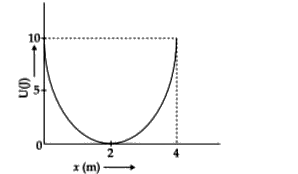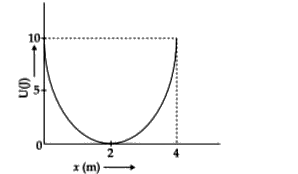In a laboratory experiment with simple pendulum it was found it took 36 s to complete 20 oscillations when the effective length was kept that 80 cm. Calculate the acceleration due to gravity from these data.
The time period of a simple pendulum is given by
T=2π√lg−1
or g=4π2lT2 ………….i
In tgeh experiment described in the question the time period is
T=36s20=1.8s
Thus by i
g=4π2×0.80m(1.8s)2=98.75ms−2
Topper's Solved these Questions
- SIMPLE HARMONIC MOTIONBOOK - HC VERMACHAPTER - SIMPLE HARMONIC MOTIONEXERCISE - Worked Out Examples
22 Videos
- SIMPLE HARMONIC MOTIONBOOK - HC VERMACHAPTER - SIMPLE HARMONIC MOTIONEXERCISE - Short Answer
13 Videos
- ROTATIONAL MECHANICSBOOK - HC VERMACHAPTER - ROTATIONAL MECHANICSEXERCISE - Exercises
86 Videos
- SOME MECHANICAL PROPERTIES OF MATTERBOOK - HC VERMACHAPTER - SOME MECHANICAL PROPERTIES OF MATTEREXERCISE - Exercises
32 Videos
Similar Questions
The period P of a simple pendulum is the time for one complete swing. How does P depend on the mass m of the bob, the length l of the string, and the acceleration due to gravity g?
View SolutionA mass of 5 kg is connected to a spring. The potential energy curve of the simple harmonic motion executed by the system is shown in the figure. A simple pendulum of length 4 m has the same period of oscillation as the spring system. What is the value of acceleration due to gravity on the planet where these experiments are performed ?

View Solution
Knowledge Check
A simple pendulum takes 32 s to complete 20 oscillations. What is the time period of the pendulum?
A1 secondB2.4 secondsC1.6 secondsDNone of the aboveThe period of oscillation of a simple pendulum at a given place with acceleration due to gravity 'g' depends on
Athe length of the pendulum 'l' onlyBboth 'l' and 'm' of the pendululmCmass of the bob of the pendulum onlyDl' and 'g'A simple pendulum is transferred from the earth to the moon. Assuming its time period is inversely proportional to the square root of acceleration due to gravity, it will
ABecome fasterBBecome slowerCRemain the sameDBe sometimes faster, sometimes slower
A mass of 5 kg is connected to a spring. The potential energy curve of the simple harmonic motion executed by the system is shown in the figure. A simple pendulum of length 4 m has the same period of oscillation as the spring system. What is the value of acceleration due to gravity on the planet where these experiments are performed ?

View SolutionA simple pendulum makes 20 oscillations in one second on the surface of the earth. Determine the time period of the simple pendulum on the surface of a planet where the acceleration due to gravity is one fourth of the acceleration due to gravity on the surface of the earth .
View SolutionA simple pendulum makes 20 oscillations in one second on the surface of the earth. Determine the time period of the simple pendulum on the surface of a planet where the acceleration due to gravity is one fourth of the acceleration due to gravity on the surface of the earth .
View SolutionCalculate the tiem period of a simple pendulum of length one meter. The acceleration due ot gravity at the place is π2ms−2.
View SolutionWhen the length of a simple pendulum is increased by 36 cm, its time period of oscillation is found to increase by 25 %. The initial length of the simple pendulum 1s (Acceleration due to gravity= 9.8ms−2)
View Solution